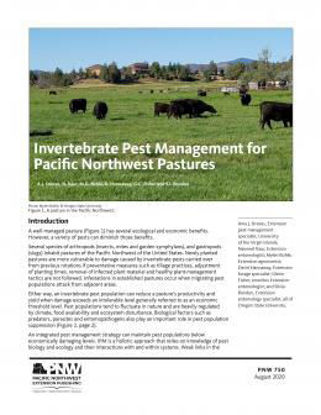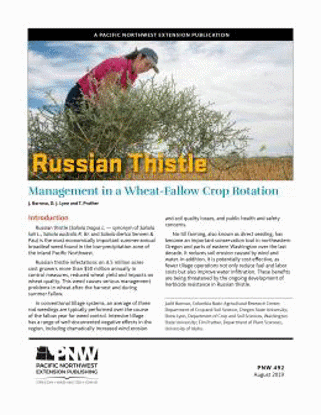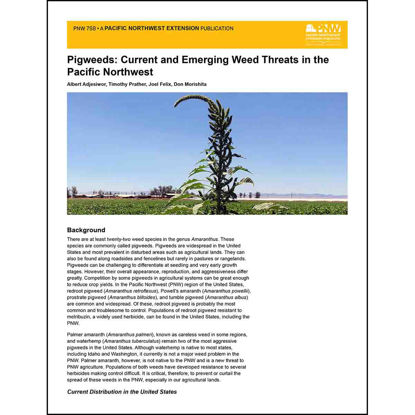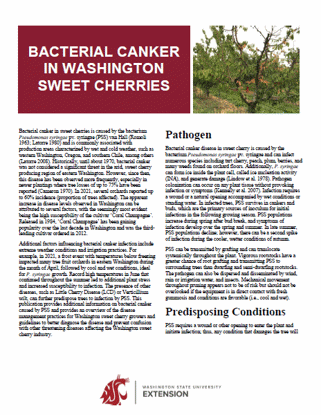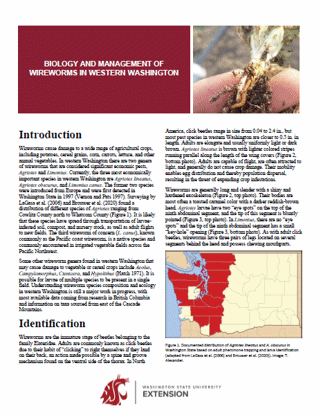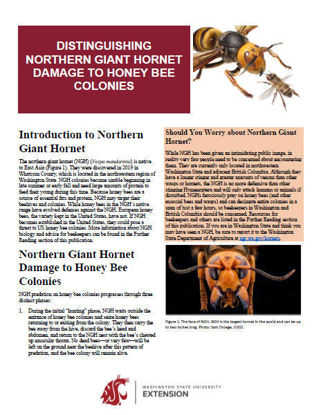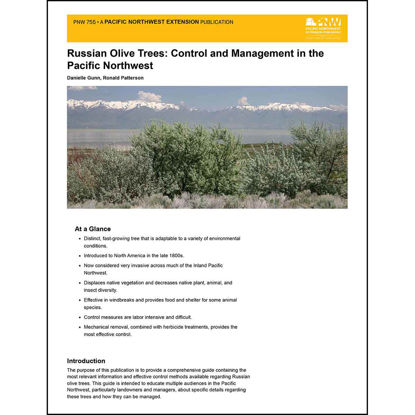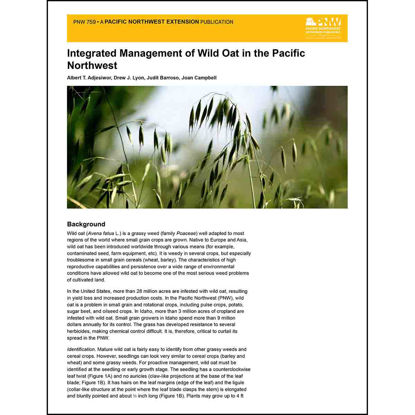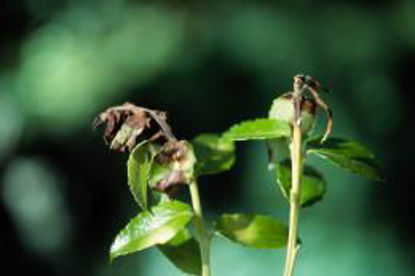You have no items in your shopping cart.
Recently viewed products
Pests, Plant Diseases, and Weeds
Pests and Plant Diseases
Invertebrate Pest Management for Pacific Northwest Pastures
A well-managed pasture has several ecological and economic benefits. However, several species of arthropods (insects, mites and garden symphylans), and gastropods (slugs) inhabit pastures of the Pacific Northwest of the United States and can diminish those benefits.
$0.00
Russian Thistle: Management in a Wheat-Fallow Crop Rotation
Reviews Russian thistle biology as it relates to management, including seed dormancy and longevity in soil, seed distribution, seed germination and emergence, plant growth after establishment, crop competition, and resistance to herbicides. Outlines key considerations for managing for 3 crop years and 1 fallow year. Describes results from a residue management experiment designed to determine how to reduce tillage while maintaining winter wheat production.
$0.00
Pigweeds: Current and Emerging Weed Threats in the Pacific Northwest
Pigweed is an invasive plant pest usually found in disturbed areas, like farmland and along roadsides and fencelines. Because their aggressiveness can reduce crop yields, this PNW discusses how to prevent or curtail their spread in the region by learning how to identify them, their impacts, and the most effective control options (sanitation, mechanical, cultural, and herbicidal methods).
$0.00
Bacterial Canker in Washington Sweet Cherries
Bacterial canker is a real problem for sweet cherry growers, but you can learn to prevent and manage this disease by following the guidelines outlined here.
$0.00
Biology and Management of Wireworms in Western Washington
By using the photos, graphics, and information in this pub, you can learn to identify and monitor wireworms in your fields: control strategies are included.
$0.00
Distinguishing Northern Giant Hornet Damage to Honey Bee Colonies
Beekeepers in Washington State: learn the signs of northern giant hornet (NGH) damage, common look-alike damage, and how to report NGH to the state. (Formerly known as Asian giant hornet.)
$0.00
Russian Olive Trees: Control and Management in the Pacific Northwest
Russian olive trees are fast-growing plants that since the 1950s have become invasive throughout many areas of the Inland Pacific Northwest, particularly in riparian ecosystems. They form impenetrable masses, create inferior wildlife habitat, and provide minimal forage value for big game and livestock. This publication helps landowners and land managers to control these woody invaders by providing a detailed botanical profile of the species and discussions of the latest regrowth research and weed-control methods and strategies. Supplemental materials, including a printable appendix, conveniently identify which native species are suitable as replacements (based on landscape type, size, and soil traits) and which herbicides and application techniques are the most effective for Russian olive control.
Authors: Danielle Gunn, Ronald Patterson
$0.00
Integrated Management of Wild Oat in the Pacific Northwest
In the Pacific Northwest (PNW), wild oat has become a notable weed pest of small grain and rotational crops, including pulse crops, potato, sugar beet, and oilseed crops. It has infested more than 3 million acres of cropland in Idaho, costing small grain growers in the state alone more than 9 million dollars annually in control costs. Feeding its spread is the fact that it has developed resistance to several herbicides. This PNW provides all the basics you need to mount a defense against the stubborn grass, including its identification, crop impacts, and management strategies. A handy table also lists the brand-name herbicides to which the wild oat has developed resistance, upping the odds on your control efforts.
Authors: Albert T. Adjesiwor, Drew J. Lyon, Judit Barroso, Joan Campbell
$0.00
Preventing Phytophthora Infestations in Restoration Nurseries
Phytophthora species are water molds that can kill plants. They can spread undetected in container plants and equipment. Once they are introduced to an ecosystem, it's difficult or impossible to eradicate them. Nurseries can help prevent the spread of Phytophthora by following some simple steps. Learn how to protect native plants from sudden oak death and other Phytophthora species.
By: Norma Kline, Marianne Elliott, Jennifer Parke, Dan Stark, Dave Shaw and Alicia Christiansen
$0.00


